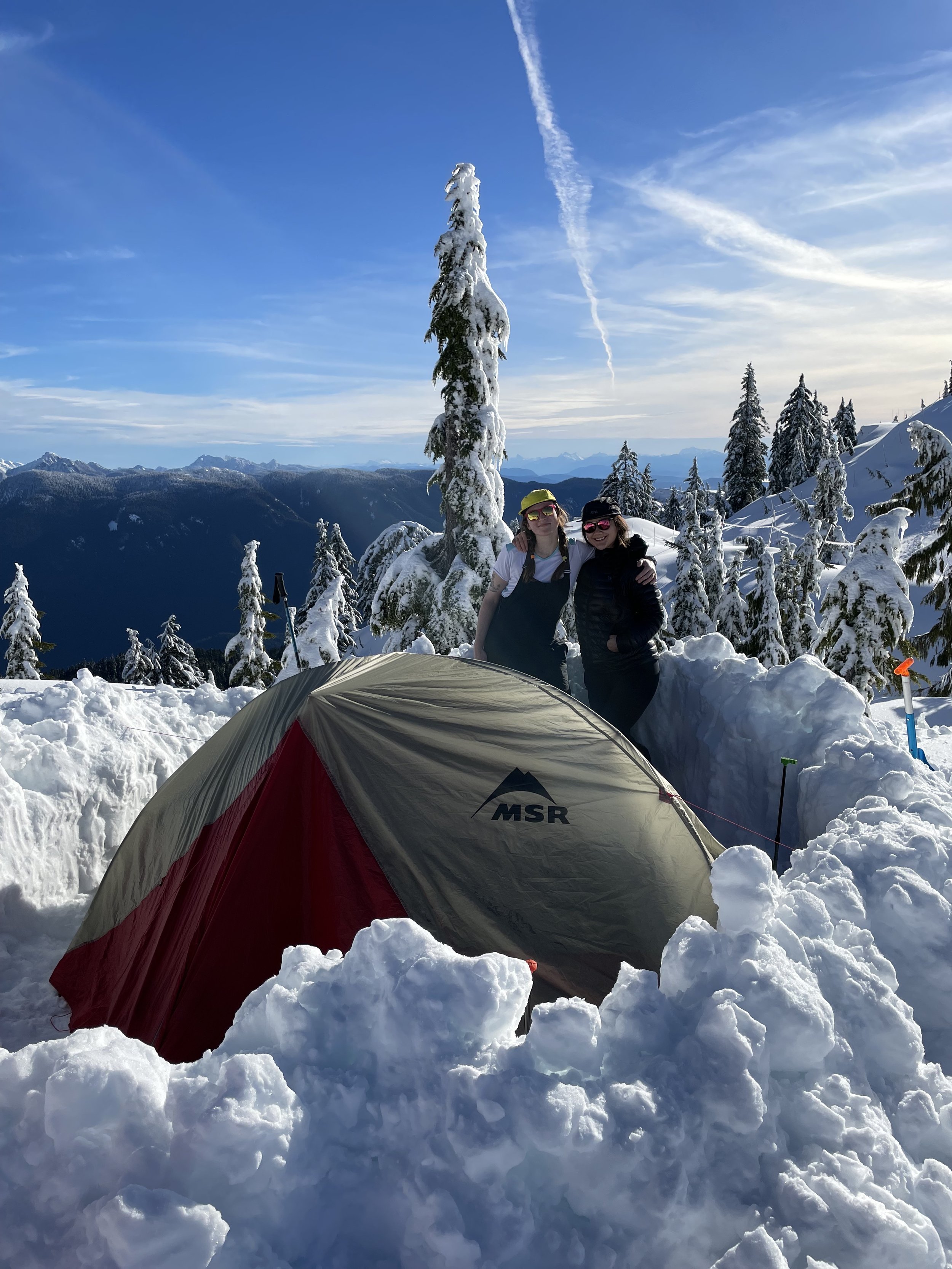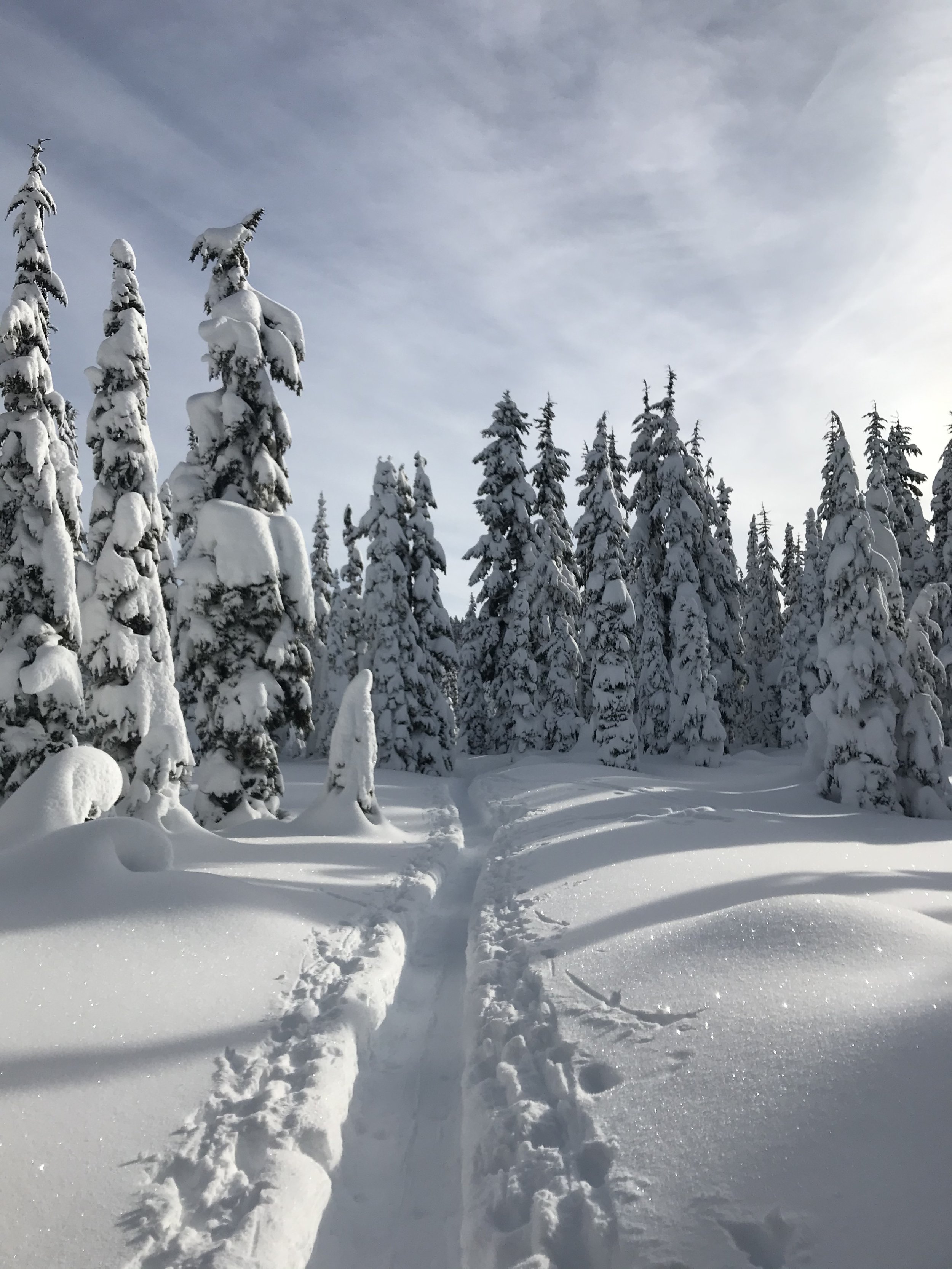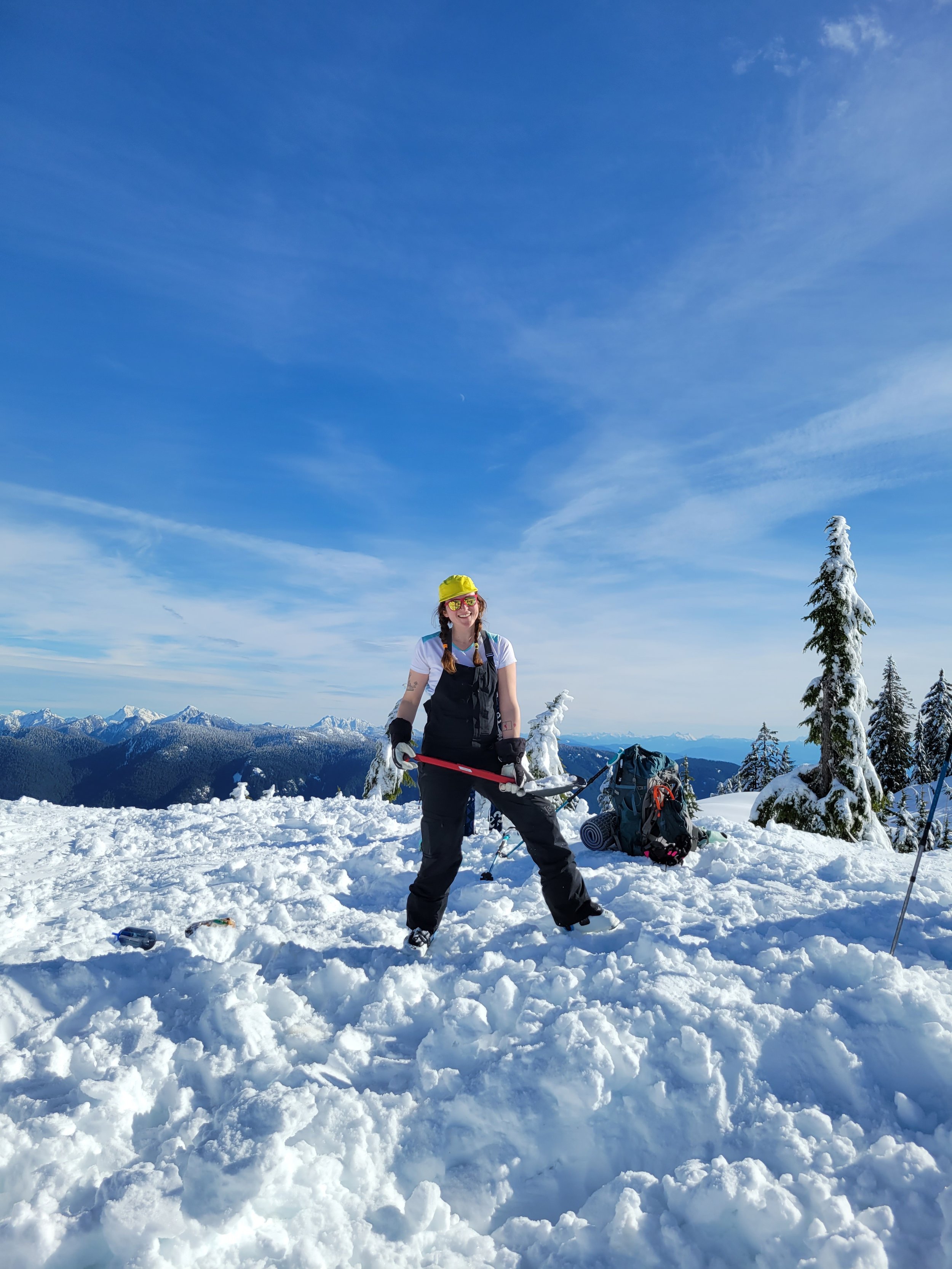Part 1
So… I’m a mentor for the first time. A fully-fledged, mountain-loving, snowsport-doing mentor. And let me tell you, it feels about as cool as it sounds. I’ll tell anyone who’ll listen — my friends, my family, colleagues, the barista at my local coffee shop, strangers on the street — about my involvement with the wonderful, peer-led mountain sports community that is Mountain Mentors.
While I may get the cool title of mentor, I am by no means a backcountry expert — quite the opposite in fact. I first began learning how to ski when I was twenty years old (I’m twenty-seven now), and… hold on… counting on my fingers… this is only my third season of touring. So what gives? How can someone with my imperfect ski form and freshly-baked backcountry experience level up to mentor status? Let’s break it down.
A community of self-development
The initial answer is right there in Mountain Mentors' Who We Are statement: “A community committed to self-development and support, in the backcountry and beyond.” Nowhere does it say anything about "experts", or "for professional athletes who know everything already."
The whole point of the Mountain Mentors’ model is to create intentional, peer-to-peer learning opportunities for people who’ve been historically excluded from mountain sports — specifically women, non-binary and gender nonconforming people.
When someone applies to the Mountain Mentors program, either as a mentor or a mentee, they enter a pairing process. The aim is to find them a match with similar boundaries and objectives for the season. It’s not a perfect science. Sometimes the backcountry and athletic experience between mentor and mentee is wide, sometimes the skill sets are closely matched. As you'd imagine, there's a much higher demand for mentee positions than there is for mentor roles. That means for every cohort, many aspiring mentees are turned away — which sucks. If more people felt empowered to be mentors, that capacity gap would likely shrink.
I first became involved with Mountain Mentors as a ski tour mentee in the 2020-21 winter season. I was paired with a fantastic mentor, Sarah, who helped skyrocket my backcountry literacy by coaching me through a variety of skills, such as how to build a trip plan, how to assess mountain terrain and general ski touring tips and tricks. (To this day I still face-plant on the uphill skintrack because I forget to lean into my heels.) You can listen to me fangirl about Sarah and my overall experience with Mountain Mentors in this TikTok.
Prior to being paired with Sarah, I had just a single season of touring under my belt. At the time, I only knew a couple of people in my circle who backcountry skied (all white dudes, all incredibly skilled skiers) so the opportunities to get out were few and far between. Still, I wanted to learn mountain travel whenever possible, so I signed up for trips with the British Columbia Mountaineering Club (BCMC).
But — as is all too familiar for people like me, i.e. beginners and learners — my trip experience with the BCMC was uncomfortable at best and dangerous at worst. Once, on a return trek from Black Tusk, a BCMC trip leader tried to leave me behind in the backcountry at dusk with a “note on my car” as I struggled down icy switchbacks on the Rubble Creek trail. Luckily for me, an older man in the group (yes, I was the only woman) came back up the trail to find me.
All of which is to say, Mountain Mentors was born out of necessity. It's a safe space for those who want to try mountain sports, but don’t know where to start. My first season as a mentee was a game-changer for that very reason: safety. Sarah created an environment in which I could ask questions, or “fail”, or be clumsy and slow — all while maintaining our safety.
No ski objective or mountain peak was prioritized over our consistent communication and boundary-following. Within these rules, we got loads of great ski lines and awesome views together. And here’s the thing, Sarah wasn’t an expert either. She had also been a mentee the season prior to becoming a mentor. But people like me, folks who are just looking to connect with other backcountry enthusiasts and go touring, aren’t in the market for experts — we’re looking for guidance and community. I swear there’s a word for that… ah yes, mentorship.
When I applied to be a mentor this season it’s not because I think I’m a touring expert. Or that I’m a professional skier. Or that I know everything there is to know about mountaineering. I applied because I have confidence in my existing backcountry ski skills — as intermediate as they are — and a belief in myself that I can pass my learnings on to someone else.
Mountain Mentors is a community built on self-development and support. Unlearning this idea of being the “perfect”, most pro-athlete on the slopes allows for more folks — like my mentee this season — access into the highly sought-after and still very inaccessible backcountry community. Imperfect coaching is better than none.
By Simone Williamson*
*About the author: Simone Williamson is a communications professional with the national environmental law charity Ecojustice. Outside of work you can find her swing dancing, enjoying a beer in the park with friends and discussing all things politics and the ethereal plane. A big nerd for mountains and backcountry skiing, Simone is ecstatic to be a part of the Mountain Mentors program for the second season in a row. She currently resides in East Van within the unceded, ancestral and traditional territories of the Musqueam, Squamish and Tsleil-Waututh Nations. Keep up with Simone on Instagram at @simone.willy.
Find Part 2 right here!





